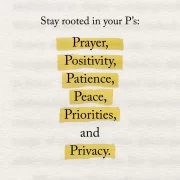May
24, 2021
8 min read
Opinions expressed by Entrepreneur contributors are their own.
In the information age, there has never been a better time to be smart. You can turn to Google and Wikipedia for all your information needs.
But the more information we have, the more we are bombarded with new references.
The problem is that there is so much data flow out there that we are not always able to apply it to the right situation, and this affects our emotions. We are overwhelmed by the amount of stimuli and responses that we are supposed to have.
The result is the modern epidemic of low emotional intelligence: in many cases, we do not know how to read others, we do not know when to listen, or we do not know how to communicate with people who are different from us.
5 tips to face the epidemic of low emotional intelligence in uncertain times
Yes, I know. It is complex to live in a permanent state of uncertainty.

Image: Depositphotos.com
In all areas there are challenges, and the more open fronts you have, the more difficult it is to define the range of action and influence. For my teacher John Maxwell, “Leadership is neither more nor less than influence.” And here the word “leader” is applied to all types of people, because everything starts from self-leadership and knowing how to govern emotions in situations that are occurring at full speed.
How to maintain focus, balance and wisdom to face them? These 5 ideas with tools can help:
1.- Not only do we have to teach emotional intelligence to our children. But to the whole world
The world is changing. Emotional intelligence is increasingly important. Techniques that used to work well are no longer effective. Technology is automating jobs; roles in companies are changing. And all of this is overwhelming for most people.
The great differential between robots, Artificial Intelligence and automation is the Emotional Intelligence of people. This is unique and irreplaceable, at least for the moment. To encourage their development, the role of education at all levels is fundamental, as well as that of people with responsibility for leading teams. And also self-education. Have you thought about this? How much are you cultivating?
To develop your emotional intelligence: you can work on your internal knowledge in the way that you think is most convenient. It will bring you as a result a greater mastery of your strengths and an improvement of your weaknesses, gradually. There is no time: the rhythm is set by you, and there is no single valid method: only the one that makes sense for you.
2.- Most people do not know how to manage their emotions
The sad truth about emotional intelligence is that most people do not have the skills or knowledge to consistently manage their own emotions.
Many know, on a cognitive level, that they are not managing well, although few are able to understand the root causes of their emotional outbursts.
Low emotional intelligence is driving everyone crazy.
Hence, the conflicts that are observed on a daily basis, uncontrolled aggressiveness, imbalance in the face of minimal situations, translate into increasingly complex social coexistence behaviors.
Tools for working: self-regulation is one of the dimensions of Emotional Intelligence that has been postulated by Dr. Daniel Goleman, compiler and great world disseminator. This means being aware of the emotions that are present in each moment, and being able to act constructively from them. This is achieved through training and emotional reeducation through psychotherapy, professional coaching, meditation and the exercise of other tools of introspection.
3.- The world is changing and requires your maximum flexibility and adaptability
In the past, we had a type of job. We had a type of boss. We had a type of colleague.
And we also had a type of client.
We had a type of partner.
We had a kind of family.
We had a type of friend.
But that has changed.
Now we have many types of jobs. We have many types of bosses. We have many types of colleagues. We have many types of clients. We have many types of partners. We have many types of relatives. We have many kinds of friends.
Everyone has different needs. So the only solution is adaptation and flexibility. The world continues to advance, and those who do not adapt to situations – without necessarily justifying them – may enter into spirals of suffering for resisting the changes and transformations that will inevitably pass over them.
To develop these skills: train your mental model to be more flexible. Here is an extremely valuable brain function, neuroplasticity, which helps to incorporate knowledge, and to change limiting beliefs and paradigms that no longer work for you. Reading topics that are very different from the usual ones, connecting with completely different circles of people, and studying and learning to learn new things permanently open the doors to greater understanding, cognitive flexibility and adaptability.
4.- Make peace with your past and prepare to move towards the new
Many people feel confused and fearful about the future, and that has not happened yet; so it is not known how it will be. That is why they cling to the past, a past that no longer exists; Or rather, it only exists in your mental and emotional configuration.
This is how they begin to create self-fulfilling prophecies by generating all kinds of negative fantasies about what is coming.
The origin of this may be related to wanting at all costs to cling to the known and to a life story that has become out of date.
As tactics: What if you use that knowledge and experiences of the past to put it in value in the present? For example, adapting some skill that you have that is already being deprecated, to what is needed at this time. This process will keep you on a healthy alert to better face the unstoppable transformations of the world.
5.- Create a better internal state every day
Emotional Intelligence allows your motivation, empathy and relationship with the environment to be more balanced if you act on it appropriately.

Image: Tengyart via Unsplash.
It all starts with reaching a state of inner balance that allows you to bond better, first with yourself and then with others. And so, as a consequence, the challenges you need to go through will find you in a better disposition to contribute, not to resist. Even if you need to establish a critical or oppositional stance to events, you will know how to apply assertiveness and hit the mark when expressing yourself, instead of overemphasizing non-contributory emotions. This will help you live with less waste of time, effort and energy.
As tools to achieve inner balance: practice activities in nature, channel your stagnant frustration by exercising and moving your energy, drink a lot of water to purify the body. It will also help you to express your emotions appropriately, find the source of what you feel and go to the root asking yourself: “Aha! And what else is there to learn from what I am experiencing? ” You will see that, by doing it permanently, you will be connecting with an internal source of wisdom that will help you act with more Emotional Intelligence.
The final key is that all this is achieved through a single process: the permanent observation of your emotions and your internal world. From there you will begin to intuit and know the ways to fully explore the range of all your emotional capacity, which is extremely wide and flexible. And it goes far beyond reacting automatically to what happens.




